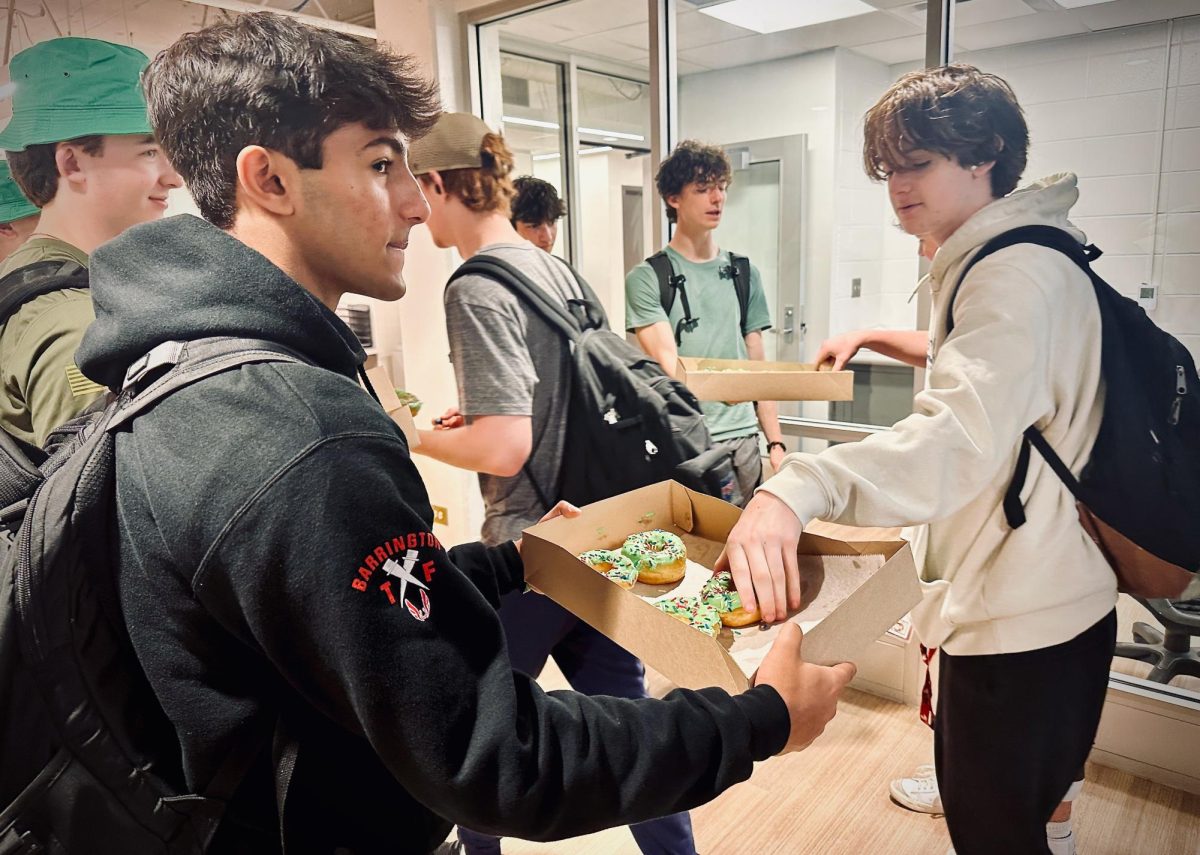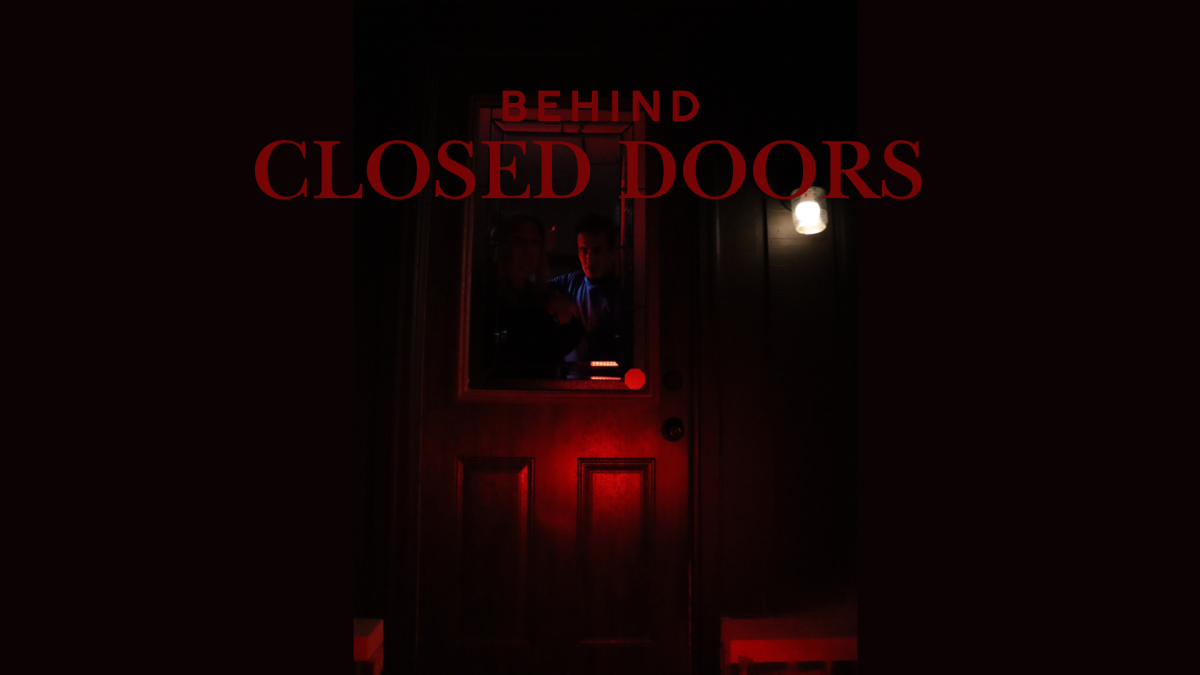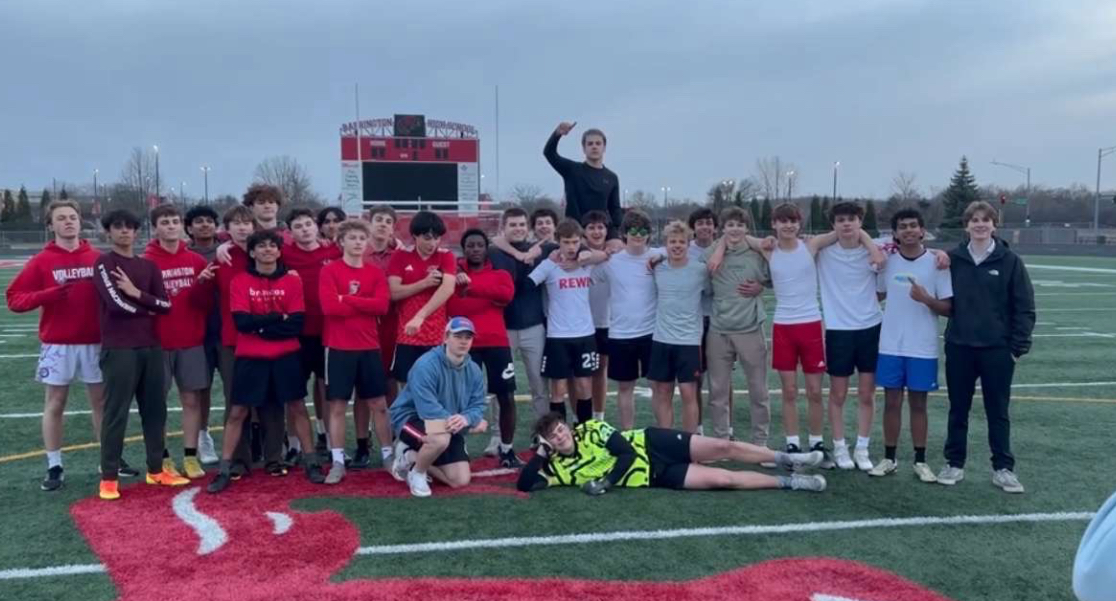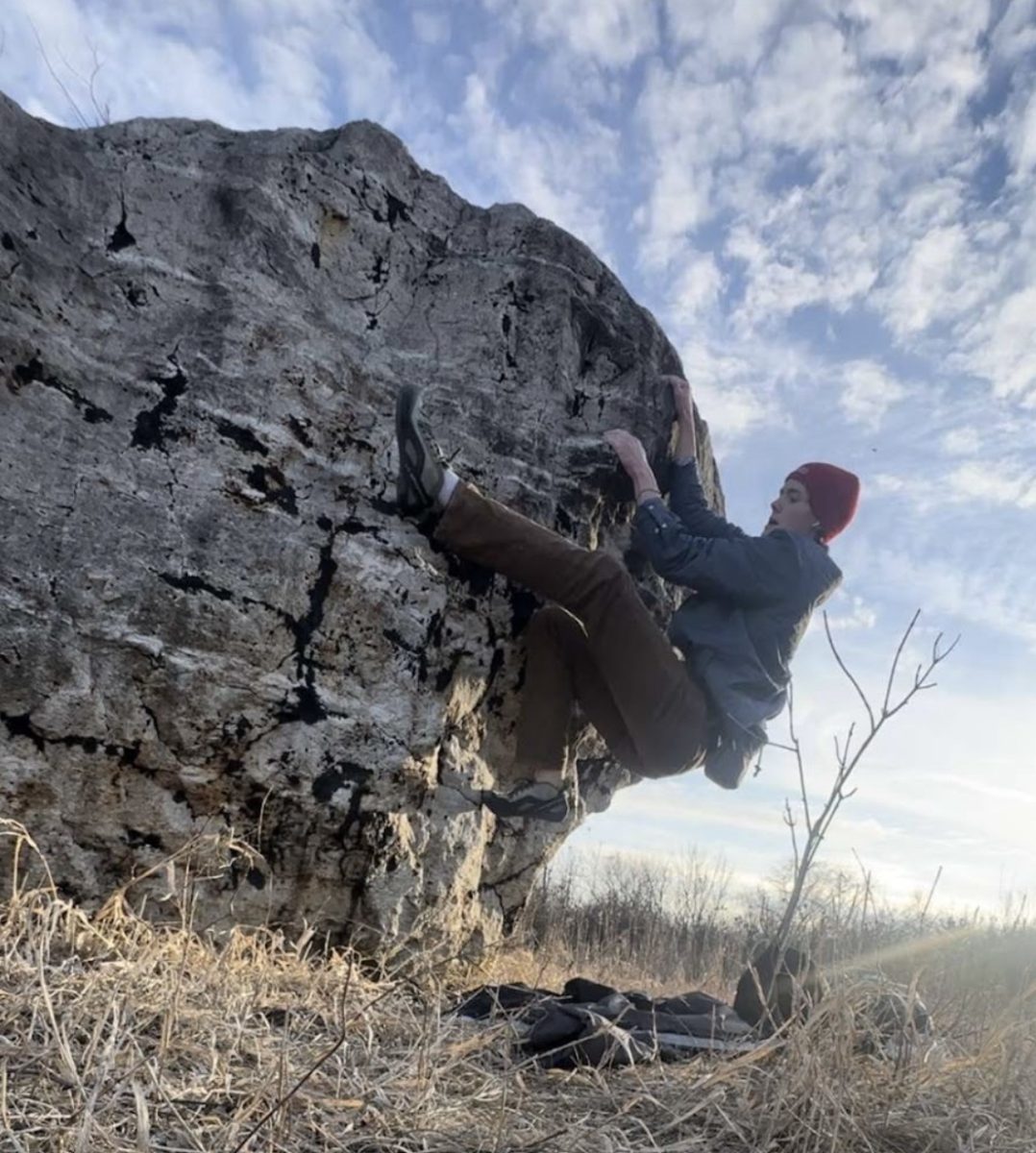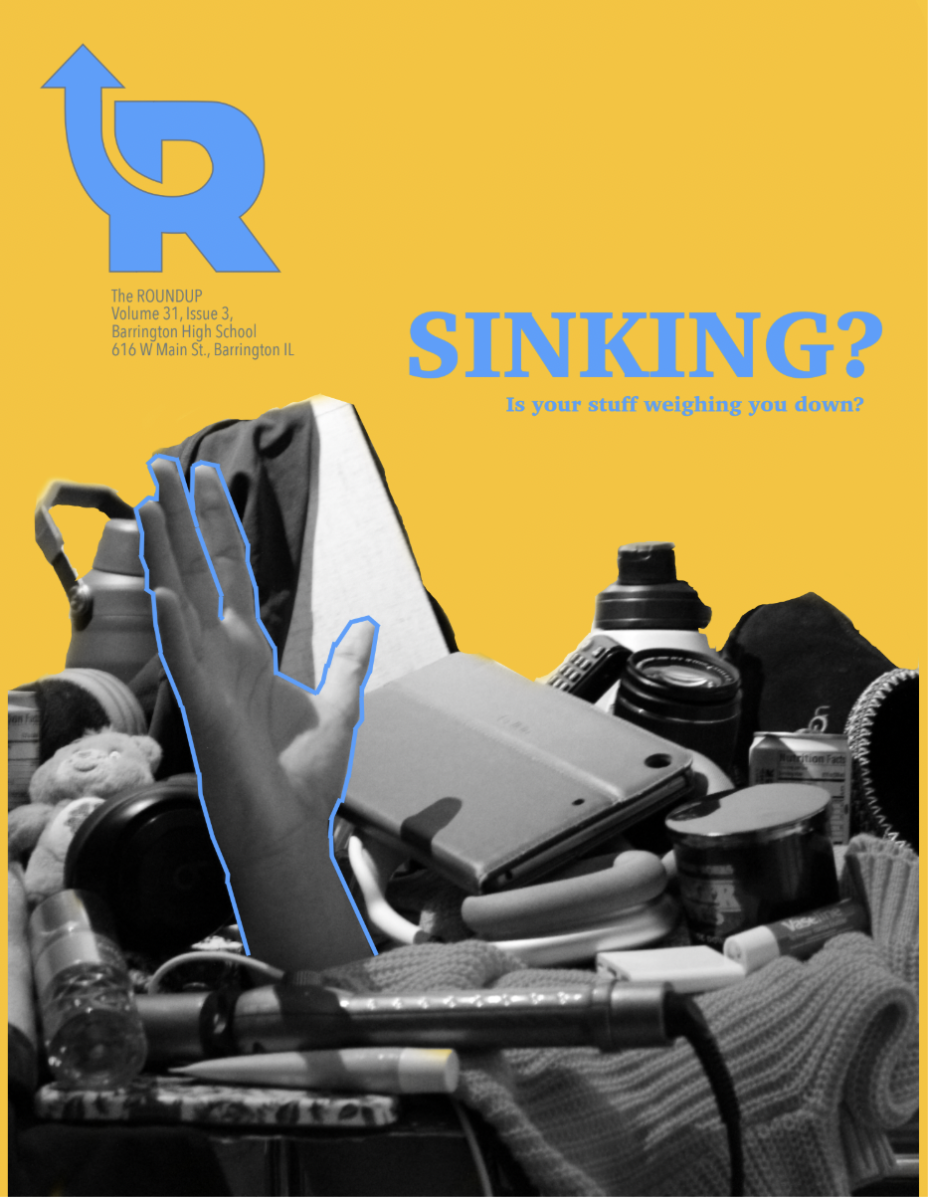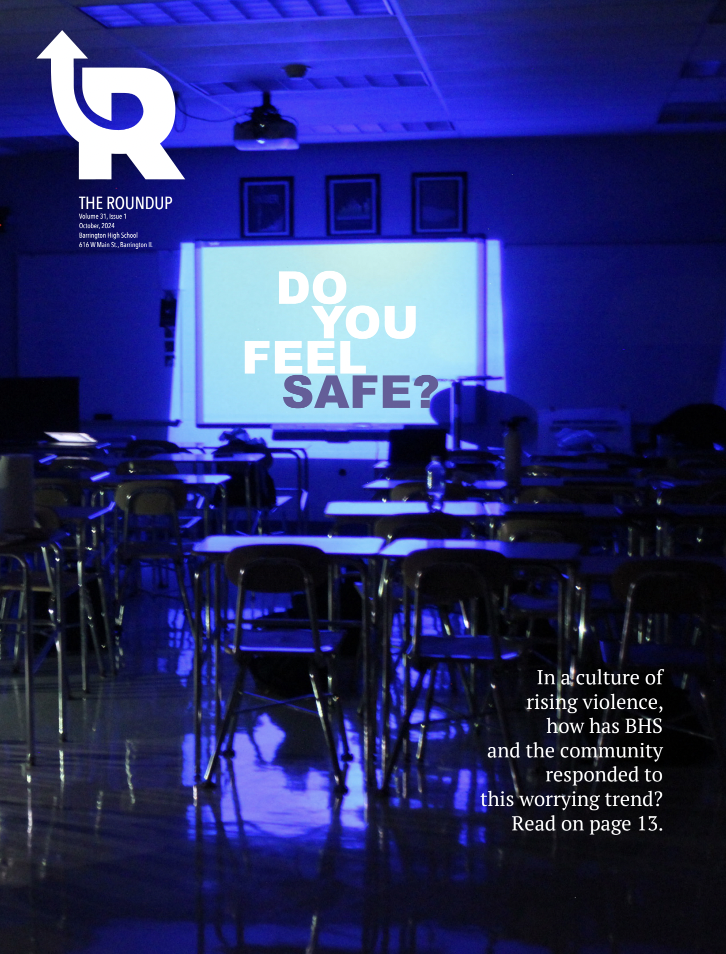The not so great snow day
It was around 2 a.m. when the lights in freshman Molly Knecht’s house went out. Knecht, asleep at the time, didn’t notice until she woke up five hours later, shivering uncontrollably.
“That’s when I knew something was wrong,” she said, “it was a snow day, I didn’t have school to wake up for.”
November 26th marked a rarity for the District 220, the first inclement weather day Knecht recalled since elementary school. However, as the snow’s depth reached upwards of 13 inches in some parts of Illinois, the administration was forced to cancel school, citing safety concerns.
“We just got home from my grandma’s, so it was…. a really nice surprise when all my friends started texting me because I was not looking forward to Monday,” Knecht laughed.
The storm’s surprises weren’t all as nice. During the night, the snow brought down several power lines, plunging over 100,000 ComEd (Commonwealth Edison Company) customers into darkness. The energy company, which holds a practical monopoly over Chicago and much of the Northern Illinois area, became so overburdened by these outages that they had to engage 250 extra employees from the East Coast. Due to this, service varied wildly.
For some, outages could be taken care of relatively quickly, like in the case of the Valencia family, who got their power back by noon.
“It wasn’t fun that morning,” senior Amanda Valencia remembered. “It was like 20 degrees outside, and we were worried about Fabby [Valencia’s paternal grandmother]. But we had blankets, so we were fine that morning. The biggest problem was not having YouTube.”
Knowing that many of their neighbors were without power, the family invited several friends to stay overnight.
“A lot of people weren’t as lucky as we were- they were staying at hotels or staying in, like, the Starbucks all day. So we let some people bunk on the couch,” said Valencia.
Like many of those neighbors, the Knechts would not regain power that day. Despite the two families living barely 500 feet away from each other, the Knechts would not be rescued from the outage until well into the following day.
“It was definitely a problem,” Colleen Knecht, Molly’s mother, said. “I never consider how much I rely on power day-to-day. Suddenly, there was no internet, there was no heat, there was no electricity; it was bad.”
To cope with the loss of heat, the Knecht’s spent most of their day in their living room, the only place in their house with a fireplace. Due to the lack of electronic devices or similar distractions, the blackout proved a bonding experience.
“There was a lot more time with family, a lot more talking to my mom and my brother than I usually do,” Knecht recalled.
While the blackout was unambiguously uncomfortable physically, it seemed to have brought out the best in both families and communities.
“Sometimes I don’t really get to talk to my family, because we all have our own lives. The good thing about the outage is it put us together,” Knecht said.
Your donation will support the student journalists at Barrington High School! Your contribution will allow us to produce our publication and cover our annual website hosting costs.


